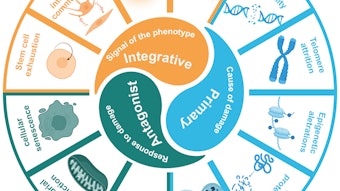The Public Access to SunScreens (PASS) Coalition applauded the U.S. Senate's unanimous passage of the Sunscreen Innovation Act (S. 2141) on Sept. 17, 2014. This passage follows the Senate Health, Education, Labor and Pensions (HELP) Committee's approval of the bill earlier in the day. According to PASS, over the past 40 years, melanoma rates have increased 800 percent among young women and 400 percent among young men, and the Act is intended to streamline the approval process for new sunscreen actives, to ensure they receive a review within a predictable timeframe. In turn, this would ensure the American public gains access to the latest safe, effective and innovative sunscreen products to protect against the sun’s most harmful rays.
Michael Werner, PASS Coalition Policy Advisor, said in a press statement, “Americans have gone more than a decade without the kinds of innovative sunscreen products citizens in other countries have enjoyed for years. Meanwhile, skin cancer has become a public health crisis that has lead U.S. Surgeon General to issue 'A Call to Action to Prevent Skin Cancer,' calling for the government and stakeholders to act immediately to address this deadly, but preventable disease."
So what does this mean for sunscreen makers? According to industry and regulatory expert, David C. Steinberg, more waiting.
"The earliest I can imagine anything will happen with this Act is 2017," said Steinberg. "First off, there are two different versions, one in the House and the other in the Senate. Both sides need to meet to come to a consensus. After this week, legislators want to recess, and then they'll be focused on the upcoming elections. I don't see anything happening during the lame duck session in December, either; legislators will have more serious matters, like current military threats, to address." He added that in 2015-2016, everyone will be focused on Presidential campaigns, and so 2017 would be the soonest anyone would likely act on this passage. "So for now, things will remain the status quo."
Then what happens? Steinberg explained, "The bills as I understand them—and I haven't been able to access and review them—require coming up with the tests to run on sunscreen actives and a timeline of when to reject/approve them. . .and the [U.S. Food and Drug Administration] (FDA) has a history of rejecting them." He noted that in many cases, Time and Extent Applications (TEAs) for sunscreens are rejected for having "not enough information." In relation, during a recent FDA Advisory Committee meeting, the committee wanted far more efficacy and safety testing for existing sunscreens. This could require existing sunscreens to undergo additional testing. Further, he adds "much of the safety work is done on animals, so they’d be banned in Europe forever."
Can the U.S. cosmetics industry, then, hope for progress any time soon in the area of sunscreens? "One of my pet peeves in regulation, for 45 years now, is that with all of these regulatory bodies, not just the FDA, European Union or even the CIR, they don’t have a single person on board who has ever made a cosmetic in their life." He explained that legislators do not understand that regulations cannot be based on the properties of a UV filter alone, but must consider the whole formulation.
"The over-the-counter (OTC) Monograph doesn’t work; I said it in a presentation I gave in March of this year at an FDA meeting on the system. When the NDA system came into being in 1972, drugs were divided into about 22 categories by the diseases they treat but they should have been divided by dosing. In this [latter] case, the three categories would be: ingested, topical with dose restrictions, and topical without restrictions." He added that a reporter at the event asked him afterward what he thought would happen with the system. "What I'd like to see happen is for the FDA to seriously consider the comments made and change the system. But what will happen?" He paused before observing, "Of all the FDA attendees present at this meeting, how many were chemists, pharmacists, toxicologists, etc.? None. How many were lawyers? All."
Steinberg concluded that the basic premise of what would happen now is: nothing. "I don’t think I’ll live long enough to see this resolved. If [the FDA] was on it and had changed the NDA system based on dosage back in 1970s, there'd be different ways of doing things now. It comes back to harmonizing the bill but for now, no one seems to care. This is not something they are going to get re-elected based on."










